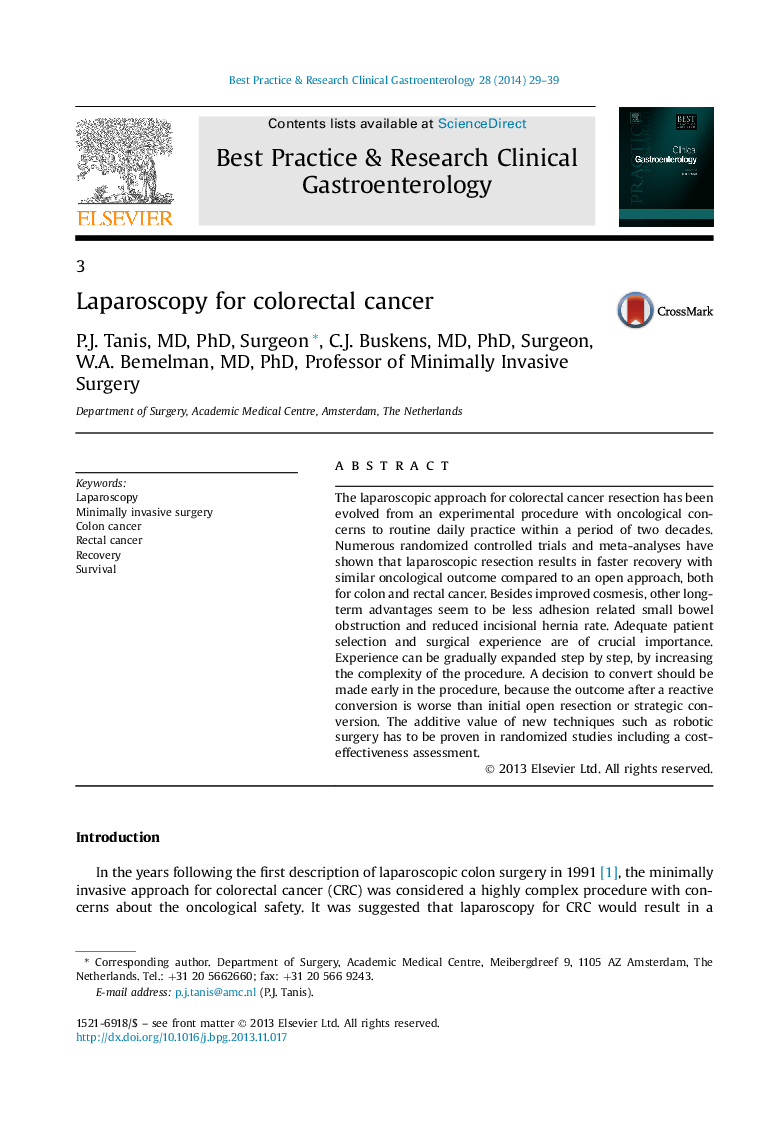| Article ID | Journal | Published Year | Pages | File Type |
|---|---|---|---|---|
| 3254444 | Best Practice & Research Clinical Gastroenterology | 2014 | 11 Pages |
The laparoscopic approach for colorectal cancer resection has been evolved from an experimental procedure with oncological concerns to routine daily practice within a period of two decades. Numerous randomized controlled trials and meta-analyses have shown that laparoscopic resection results in faster recovery with similar oncological outcome compared to an open approach, both for colon and rectal cancer. Besides improved cosmesis, other long-term advantages seem to be less adhesion related small bowel obstruction and reduced incisional hernia rate. Adequate patient selection and surgical experience are of crucial importance. Experience can be gradually expanded step by step, by increasing the complexity of the procedure. A decision to convert should be made early in the procedure, because the outcome after a reactive conversion is worse than initial open resection or strategic conversion. The additive value of new techniques such as robotic surgery has to be proven in randomized studies including a cost-effectiveness assessment.
